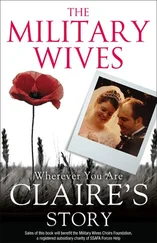• • •
Ten years ago, Lake Street — the last surviving vanity landmark of poor Myron Lake, site of Reno’s original iconic arch (you know it, Biggest Little City in the World ) — was lined with slums: dumpy neglected mansions with fire escapes grafted to their sides, bedsheets covering the windows, most of them halfway houses. But soon people were calling Lake Street and the surrounding neighborhood Newlands Heights. Op-ed columns parleyed on the topic of redevelopment. Three Fifteen Lake was converted from the single-family mansion envisioned by Himmel Green to six one- and two-bedroom apartments in 2001, one of the last to go. By then, Newlands Heights (named, of course, for Francis G. Newlands, Nevada senator, prudent annexer of Hawaii, irrigator of the American West, and great civilizer of savages) was lined with post — Comstock Lode Colonials and Victorians, their lavish parlors and sunrooms partitioned into open studio apartments and condos with hardwood floors. They’ve even torn down the original arch — it attracted vagrants and teenagers, they said. I was assured, back when things like this meant anything to me, that the city was erecting a replica, in neon, across Virginia Street, closer to the big casinos.
These days, they say Newlands Heights is worth quite a bit, and for all my bitching about gentrification, I don’t mind this. A person feels just as guilty living among the poor as she does living among the rich, but at least you can be angry at the rich. I can afford to live at 315 Lake only because the landlords, Ben and Gloria (nice people, Burners turned bourgeois, role models to us all) hired my boyfriend — ex-boyfriend — J to do the cabinetwork on the building. J ended up, as he does with so many of his business associates, smoking a bunch of pot with Ben. J considers marijuana the universal ambassador of goodwill, and himself its humble steward. Gloria was pregnant and Ben was desperate, pouring money into a building with no tenants. One afternoon, J and Ben sat on a pallet of bathroom tiles passing a joint between them, and J persuaded Ben to give me a deal on the only unit they’d finished, a studio on the first floor, number two. It was probably the last nice thing I let him do before he left.
I lived through nine months of construction noise and paint smells, the rest of the building a hollow skeleton. Once, I heard someone working in the unit right above me and went up there to see who it was. I was thinking if it was Ben I’d give him my rent check, see if he had any weed I could buy off him, or that he’d just give me. But it was Gloria, standing in a room painted a crisp robin’s-egg blue, splotches of the paint on her hands and overalls, speckles in her blond hair. Clear plastic drop cloths billowed in the breeze from the open windows. She rested her hands on her globe of a belly and turned to me. I saw then that the room wasn’t entirely painted. In front of her was a patch of wall the size of a playing card, dingy beige.
“I found it when we scraped the wallpaper,” she said, her eyes teared up with sadness or paint fumes or both. She had a paintbrush in her right hand. “I’ve been avoiding this spot for a week.” I bent to examine the patch of bare wall and saw there, scrawled in charcoal or heavy carpenter’s pencil,
H. loves Leo, 1909.
“How can I do this?” said Gloria. And she said it again as she slopped a stripe of blue over the writing.
This was just before my mom died. Before Razor Blade Baby moved in. I didn’t know what to say. Now I know better. I see Gloria in the yard, and I’d like to give her an answer. She’s had her baby and puts a playpen under the willow tree and sings over to the girl while she gardens. She named her Marigold. I’d like to say: You do it because you have to. We all do.
And here we are.
The day my mom checked out, Razor Blade Baby moved in. Upstairs. Number four. Right above me. We are neighbors at 315 Lake Street, Newlands Heights, Reno, Nevada. That first day I heard the floorboards above my bed creak, then the hall stairs. When I opened the door, Razor Blade Baby invited me to see a three-dollar matinee at the old Hilton Theatre. Though I like their popcorn (stale and fluorescent yellow, salty enough to erode a gully in the roof of your mouth) and their hot dogs (all beef), I said what I would say every Sunday: No. No, thank you. I closed the door, and she sat on the stairs as she would every Sunday. She stayed there all day.
My father, Paul Watkins, met Charles Manson at a house party in San Francisco eleven months before Razor Blade Baby was born. He and Charlie wrote songs together and camped around the bay until December, when they set out for L.A., bored with the city, sick of the rain. Paul was eighteen and handsome. Or so my mother would tell me later.
At Spahn’s, Paul moved his things into the old jail set: a sleeping bag, candles, his guitar and flute. He looked younger than his age, young enough to enroll himself in Pacific Palisades High School, though he’d already graduated the previous spring, a year early. He would become fond of pointing this out in interviews. (To Maureen Reagan on Larry King Live , August 23, 1987: “We were bright kids, Maureen. Not delinquents. I was the class president.” Larry was out sick.) Paul went to Pali, home of the Dolphins, for two months to meet girls and bring them back to the ranch. He was good at it.
Years later, well after he was finally swallowed up by Hodgkin’s disease, my mother, after one of her attempts to join him, wherever he was, called my father “Charlie’s number one procurer of young girls.” I couldn’t tell whether she was ashamed or proud of him.
She also said, lying on her bed at University Medical Center, bandages on her wrists where she’d taken a steak knife to them, “When you go, all that matters is who’s there with you. Believe me. I’ve been close enough enough times to know.”
About once a year someone tracks me down. Occasionally it’s one of Charlie’s fans wanting to stand next to Paul Watkins’s daughter, to rub up against all that’s left, to put a picture up on his red-text-on-black-background website. Far more often, though, it’s someone with a script. Producers, usually legit ones — I Google them: True Lies, The Deer Hunter . They offer to drive down from Lake Tahoe, take me out to dinner. They never want my permission to make their movie or input on who should play me (Winona Ryder); they just want to know how am I.
“How are you?” they say.
“I’m a receptionist,” I say.
“Good,” they say, long and slow, nodding as though my being a receptionist has given them everything they came for.
The day after Razor Blade Baby moved in, I rode my bike across the Truckee River to work. Razor Blade Baby followed, wearing a blazer, trailing behind me on a violet beach cruiser with a wicker basket, her long hair flapping behind her as though tugged by a hundred tiny kites. She followed me up the courthouse steps and sat in the lobby in front of my desk. She stayed there until lunch, when we sat on a bench beside the river, me eating a burrito from the cart, her dipping celery sticks into a Tupperware dish of tuna salad made with plain yogurt instead of mayonnaise. After lunch I went back to work, she back to the lobby. At five we rode home.
Some days she brings a roll of quarters and plugs the parking meters in front of the building. Others she crosses the street and browses the souvenir shops. I watch her from my office window, through the shop’s glass front, running her fingers along the carousels of T-shirts. When the sun is very hot she simply sits on the courthouse’s marble steps, drinking a cherry Slurpee, her palm pressed to the warm rock.
Some weekends I go out, and Razor Blade Baby comes along. One night, about three months after she moved in, I went to a dinner party to celebrate a friend’s new condo, built high up in the hollowed-out bones of the renovated Flamingo. A row of one-legged bird silhouettes was still left on the building’s façade.
Читать дальше












